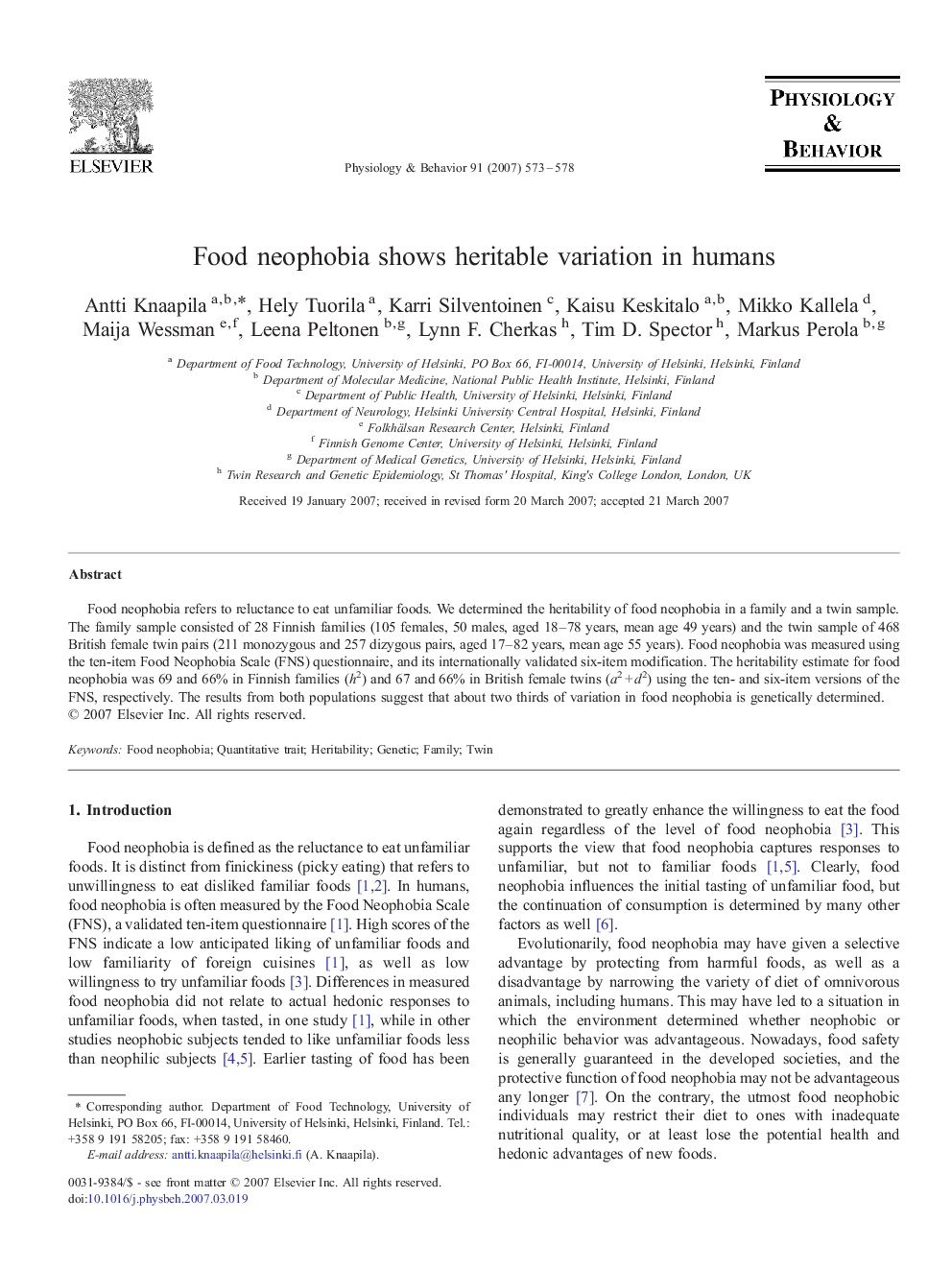| Article ID | Journal | Published Year | Pages | File Type |
|---|---|---|---|---|
| 2846076 | Physiology & Behavior | 2007 | 6 Pages |
Food neophobia refers to reluctance to eat unfamiliar foods. We determined the heritability of food neophobia in a family and a twin sample. The family sample consisted of 28 Finnish families (105 females, 50 males, aged 18–78 years, mean age 49 years) and the twin sample of 468 British female twin pairs (211 monozygous and 257 dizygous pairs, aged 17–82 years, mean age 55 years). Food neophobia was measured using the ten-item Food Neophobia Scale (FNS) questionnaire, and its internationally validated six-item modification. The heritability estimate for food neophobia was 69 and 66% in Finnish families (h2) and 67 and 66% in British female twins (a2 + d2) using the ten- and six-item versions of the FNS, respectively. The results from both populations suggest that about two thirds of variation in food neophobia is genetically determined.
